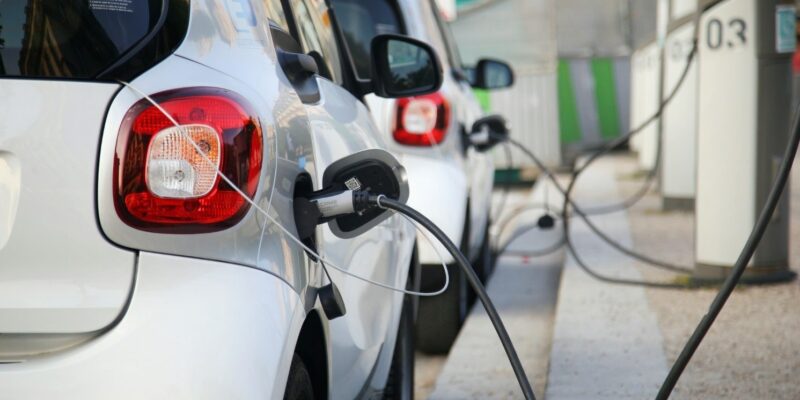
With climate change becoming an increasingly hot topic around the world, electric and hybrid cars have a crucial role to play in our bid to reduce carbon emissions and lessen our impact on the environment.
In the UK, there are plans in place to bring all greenhouse gas emissions to net-zero by 2050, and the automotive sector can make giant strides in that regard, thanks to the continuing development of eco-friendly technology.
Environmentalists have long since campaigned against the amount of air pollution produced by cars and other forms of transport. Attitudes seem to be changing, with data from the Society of Motor Manufacturers and Traders revealing there were more than 136,600 pure-electric cars on the UK’s roads as of July 2020, and over 330,800 plug-in models.
So, these eco-friendly vehicles are becoming more commonplace, but is there a widespread understanding of the various types? What’s the difference between hybrid and electric cars and how do they work? How much do they cost? How long do the batteries last? If you get stuck between choosing electric or hybrid cars, this guide may be able to help you.
How do electric cars work?
Electric vehicles run on a stack of batteries, which transfer their power to an electric motor, which in turn drives the car’s wheels. The batteries are usually lithium-ion, which can store higher amounts of energy and therefore improve running time.
Drawbacks of this system are that the batteries are often hefty, and their performance can be affected by the weather, offering a reduced range in colder conditions. The good news is that manufacturers continue to improve their electric car offering. Most electric cars recharge via a standard domestic plug, a wall-mounted charger or fast chargers, installed at a network of service stations.
How do hybrid cars work?
People often ask, “are electric cars and hybrid cars the same?” The truth is that they work in slightly different ways. Hybrid vehicles combine a petrol or diesel engine with at least one electric motor and drive the car’s wheels via three methods – in electric, hybrid or engine mode.
In the former, the batteries are the sole source of power. In a hybrid, it is the combustion engine that provides the energy to the electric motor and the excess power can be used to recharge the battery. In engine mode, the car works much the same way as a conventional vehicle, but here the battery can also be replenished at the same time.
Are hybrid or electric cars better for the environment?
In simple terms, electric cars are better for the environment than their hybrid counterparts because they produce zero exhaust emissions. Hybrid vehicles, on the other hand, will still be burning fuels when they run in either engine or hybrid mode.
How much does an electric car cost?
Like any type of vehicle, the cost of an electric car will depend on the make and model. For example, a new smart fortwo might cost somewhere in the region of £20,000*, whereas a Jaguar I-PACE will command a price of around £65,000. But of course, the purchase fee is not the only expense involved.
There are running costs to factor in, too, although recent studies show electric cars are now cheaper to own than petrol cars – encouraging news for anyone who’s thinking of swapping to a more eco-friendly model.
The cost of charging will vary depending on the charger type, the size of the battery and the power required. While electric cars are exempt from road tax and are often cheaper to maintain than hybrids, they tend to be more expensive to insure because hybrids are more common.
How much does a hybrid car cost?
Again, this will depend on the make and model you select. A Toyota Prius may cost somewhere in the region of £25,000 whereas a BMW X1 might come in at somewhere closer to £40,000.
However, as a general rule, the up-front cost of a hybrid tends to be lower than that of electric vehicles. For example, the starting price of the fully electric Audi e-tron is around £60,000. In size and format it is not dissimilar to its stablemate the Q5, which will cost around £40,000 for a hybrid version.
How long does it take to charge an electric car?
The amount of time it takes to get an electric car up to full charge will depend on a number of things, such as the size of the battery and the speed of the charger. A BMW i3 or a Mini Electric can be topped up to 80% in around half an hour when using a rapid charger, whereas a standard charger may take two to three hours to reach that level. Check our guide to electric charging points for more information.
How long do hybrid cars take to charge?
In terms of charge time, electric and hybrid cars are broadly similar, although the latter have the added benefit of being able to charge the batteries when driven in hybrid or engine mode. To give you an idea, the BMW 530e needs around three hours to get up to 100%, while Audi hybrids can charge in a little under that when using a connection output of 7.5kW.
How long do electric car batteries last?
The maximum range of an electric car tends to vary between make and model. A Mercedes-Benz EQC can go for approximately 208 miles before needing a recharge, while a smaller vehicle such as the smart forfour has a maximum range of between 70-80 miles. And, in terms of lifespan, most manufacturers will place a lengthy warranty on their batteries, usually of five to eight years, while the units themselves can run for anywhere between 10 and 20 years before needing to be replaced.
How long do hybrid car batteries last?
Similarly, a typical hybrid battery will last around 10 to 15 years, and leading brands such as Toyota offer a warranty of five years (or 100,000 miles, whichever comes first). Because hybrids do not work solely from the battery, their electric-only range tends to be a lot lower than pure electric cars. A Mini Countryman hybrid, for example, can cover 26 miles before it begins to draw its power from the petrol or diesel engine.
Hybrid cars vs electric cars: Have you made your choice?
Now we’ve identified some of the key differences between hybrid and electric cars, hopefully you feel you can make an informed decision on the leading brands and technologies which are most suited to you. Have a look at our electric cars running cost comparison for the most popular models. At Jardine Motors, we have a wide range of both new and used electric and hybrid cars, so why not get in touch with your local dealership and find the model that’s the perfect match.
You Might Also Like
What Would Make You Go Electric?
8 Reasons to Buy an Electric or Hybrid Car
Company Car Tax Incentives to Go Electric
Visit our YouTube channel, where you can find more car reviews and walkarounds by our fantastic experts.
*Disclaimer: Vehicle estimate prices correct as of August 2020.



